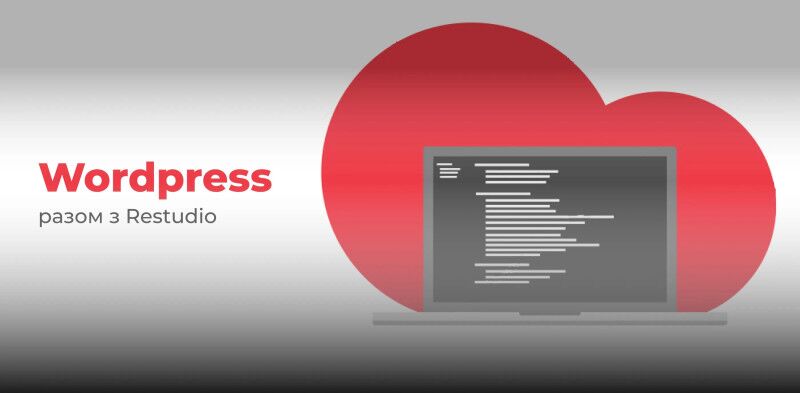What is a CMS?
CMS is a content management system that allows you to create, edit and manage website content. It can greatly simplify the development and administration of websites, including online stores.
Each CMS system has its own set of functions, and it is important to choose the right one for your goals. For online stores, these can be tools for managing products, orders, payments and other important aspects of the business.
Types of CMS
There are different types of CMS that meet different needs and types of sites. Let's consider the main ones:
- Free CMS: The most popular of them are WordPress, OpenCart, PrestaShop.
- Paid CMS: As a rule, such platforms have more advanced functionality for large projects (for example, Magento or Shopify).
CMS for an online store: how to choose?
Choosing a CMS for your online store is an important step on the way to creating a successful online business. A content management system (CMS) determines how your store will look, how its structure will work, and what support it will receive from technical specialists. If you choose the right CMS system, your site will be fast, convenient, and ready to scale. Among the most popular options, it is worth mentioning:
1. CS-Cart
CS-Cart — is a powerful platform for creating online stores and marketplaces of any scale. It provides a wide range of tools for managing products, orders and site design, allowing entrepreneurs to quickly launch and effectively manage their online business.
Advantages of CMS CS-Cart:
- Flexible customization options
The platform allows you to change key store parameters, including appearance, payment methods, shipping methods and other important features, which allows you to configure the store according to business needs.
- Convenient administrative panel
Managing the store is intuitively simple: adding products, processing orders and managing customers is done without any difficulties, even for users without technical knowledge.
- Active community and technical support
A large number of users and developers contributes to a quick solution questions, exchange of experiences and the emergence of new modules to expand the functionality of the store.
- Built-in SEO tools
The platform contains all the necessary tools to increase the visibility of the site in search engines, which helps to attract more organic traffic and improve positions in Google.
2. CMS WordPress
CMS WordPress — is one of the most popular platforms for creating websites and online stores in the world. It has gained popularity due to its ease of use and powerful customization capabilities through a variety of plugins and themes. WordPress is actively used for online stores thanks to the additional WooCommerce plugin, which allows you to quickly turn any site into a full-fledged online store.
Advantages of CMS WordPress:
- Ease of use
The CMS admin interface is intuitive even for beginners. You can quickly add new products, edit pages, and customize site elements without the need for programming.
- Scalability
While WordPress can initially be used for a small store, as your business grows, you can add new features and integrations via plugins. This allows businesses to grow without having to rewrite their website from scratch.
- SEO Optimization
WordPress supports a variety of SEO plugins, such as Yoast SEO, that allow you to customize meta tags, adjust URL structure, and improve your site’s visibility in search engines.
- Open CMS
Since WordPress is an open platform, developers can modify it to meet specific business needs. This provides great flexibility for those with programming experience.
Disadvantages:
- Security
Because WordPress is a popular and open source project, it is a popular target for hacker attacks. However, with the help of security plugins and regular updates, you can minimize these risks.
- You need to update plugins and themes from time to time
Many plugins and themes for WordPress require regular updates to avoid security or performance issues.
3. Magento
Magento — is a powerful CMS platform specializing in e-commerce. It is designed for large online stores that work with large product catalogs and have high functionality requirements.
Magento advantages:
- Flexibility and scalability
Magento allows you to configure and scale online stores of any size. You can create stores for large corporations with complex product catalogs.
- Powerful data analysis capabilities
Magento has built-in analytics tools that allow business owners to track sales, user behavior, conversions, and more in detail.
- International capabilities
The platform supports multilingualism and multicurrency, making it an ideal choice for stores operating in international markets.
- Integration with other systems
Magento easily integrates with other business systems, such as CRM, ERP, and others, which allows you to effectively manage large amounts of data.
Disadvantages:
- High complexity
Magento requires programming experience to set up and maintain. This can be a significant barrier for store owners who do not have technical experience.
- Resource intensive
The platform requires large amounts of server resources to work properly, so for large stores you need to invest in a quality hosting service.
4. PrestaShop
PrestaShop — is a powerful, but easier to configure CMS system for online stores. It is ideal for small and medium-sized businesses that want to create a functional online store without high costs.
Advantages of PrestaShop:
- Easy to set up
Ideal for beginners. PrestaShop makes it easy to set up an online store without technical knowledge.
- Rich functionality
The platform has built-in features for product creation, order processing, integration with payment systems, customer management, and much more.
- Modularity
You can easily add new features through plugins and modules, which makes the platform flexible and adaptable to business needs.
- SEO optimization
Built-in tools allow you to configure SEO to improve the visibility of the store in search engines.
Disadvantages:
- Possible limitations for large stores
PrestaShop can be less suitable for very large stores with hundreds of thousands of products or complex business processes.
- Interface can be difficult for beginners
While the system is generally user-friendly, some interfaces may not be as intuitive for beginners.
5. OpenCart
OpenCart — is another easy-to-use CMS system that allows you to create an online store with basic features with minimal effort.
OpenCart Advantages:
- Ease of Use
OpenCart has a simple interface that allows you to quickly set up a store and start selling.
- Affordability
The cost of using OpenCart is low compared to more powerful platforms such as Magento.
- Flexibility of Settings
There are many templates and modules to customize the interface and functionality.
- Support for multiple currencies and languages
OpenCart allows you to work with different currencies and languages, which is important for international businesses.
Disadvantages:
- Limited support for large stores
OpenCart may not be ideal for large stores with a large number of products.
- Requires additional customization for some features
More complex setups may require additional customization or the use of plugins.
CMS Admin: How to Manage Your Store Effectively
CMS admin panel — is the interface through which website owners manage content, products, orders, and other aspects of their online stores. For an online store, it is important that the admin panel is not only clear, but also convenient for effective business management.
You should look for a CMS with:
- An intuitive interface for quickly adding products and services, managing orders, and interacting with customers.
- The ability to integrate with other systems to automate business processes, such as CRM or ERP.
- Support for analytics and reporting to track sales, conversions, and reviews.
- Security and access rights to prevent unauthorized access to your information.
CMS or designer — Which is better for your business?
The decision to choose between a CMS or a website builder is important for those who want to create an online store.
- A CMS system is usually a more flexible and powerful tool that allows you to implement more complex functions, but requires a certain level of technical knowledge or the involvement of specialists.
- Website builders usually provide limited features, but they are easy to use and are suitable for creating simple websites and stores without the need for programming.
If you are planning a large project with a large number of products and users, choosing a CMS system (such as Magento or PrestaShop) will be optimal. For small stores with a limited budget and simple requirements, you can consider website builders.




